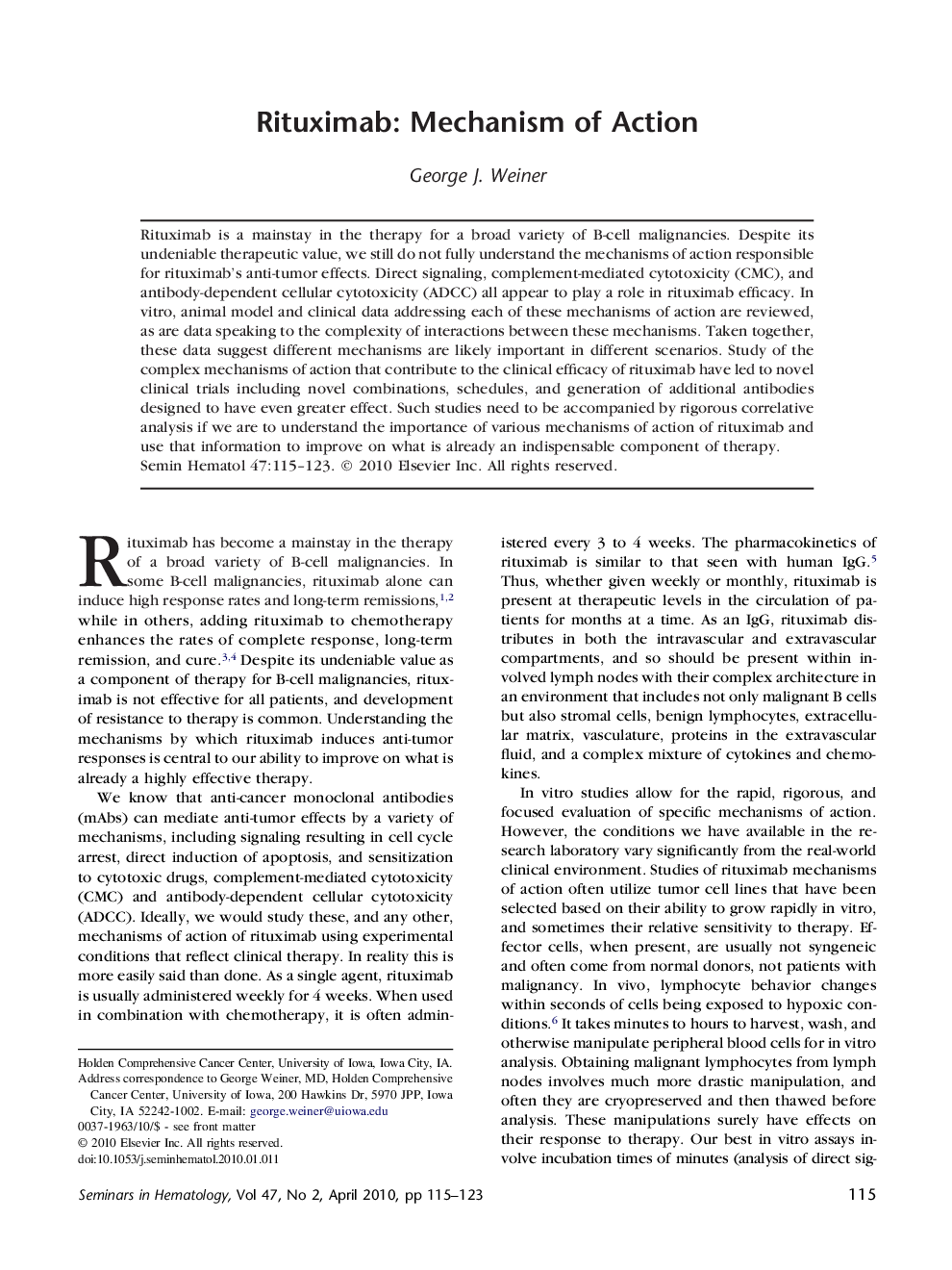| Article ID | Journal | Published Year | Pages | File Type |
|---|---|---|---|---|
| 3333670 | Seminars in Hematology | 2010 | 9 Pages |
Rituximab is a mainstay in the therapy for a broad variety of B-cell malignancies. Despite its undeniable therapeutic value, we still do not fully understand the mechanisms of action responsible for rituximab's anti-tumor effects. Direct signaling, complement-mediated cytotoxicity (CMC), and antibody-dependent cellular cytotoxicity (ADCC) all appear to play a role in rituximab efficacy. In vitro, animal model and clinical data addressing each of these mechanisms of action are reviewed, as are data speaking to the complexity of interactions between these mechanisms. Taken together, these data suggest different mechanisms are likely important in different scenarios. Study of the complex mechanisms of action that contribute to the clinical efficacy of rituximab have led to novel clinical trials including novel combinations, schedules, and generation of additional antibodies designed to have even greater effect. Such studies need to be accompanied by rigorous correlative analysis if we are to understand the importance of various mechanisms of action of rituximab and use that information to improve on what is already an indispensable component of therapy.
